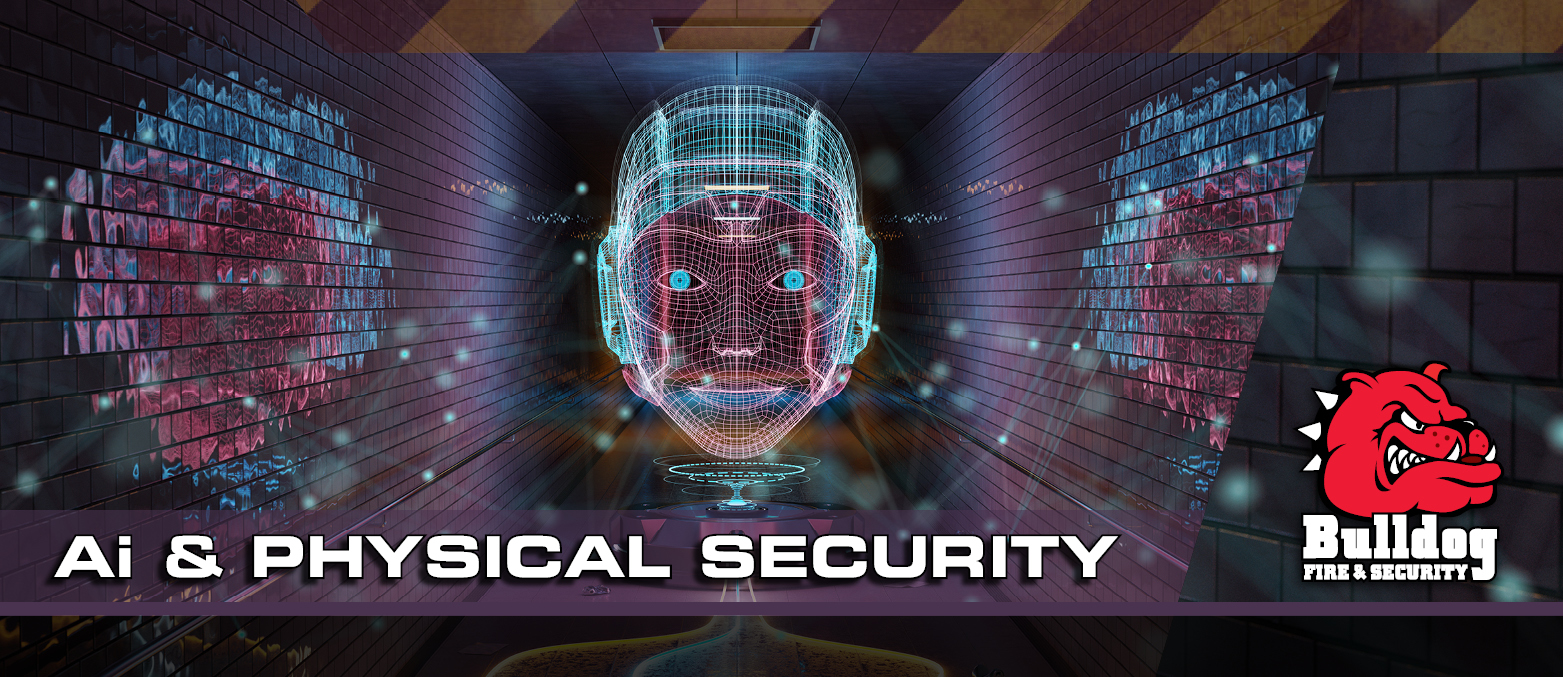Artificial Intelligence (AI) is changing the way the security industry works. Once relegated to the world of science fiction, computerized automation of tasks has become a staple in our everyday lives. Whether we’re asking Alexa to dim our living room lights, or we’re using it to monitor security footage with advanced video analytics, AI strives to make our lives more convenient, efficient, and secure, and when it comes to physical security, artificial intelligence is evolving rapidly to improve existing systems and devices. Here are just some of the prevalent ways AI can be utilized to improve physical security.
Robotics
When it comes to security, the most common types of robots are unmanned ground vehicles (UGVs) and unmanned air vehicles (UAVs). Many facilities already employ the use of drones to achieve surveillance footage of areas that would be otherwise unrealistic to capture, but artificial intelligence is making these drones more reliable and efficient. AI allows for advanced navigation capabilities, obstacle avoidance sensors, and intelligent mechanics. All of these features work to streamline traditional operations, attain better and more useful footage, and reduce risk of human injury and error.
One Step Ahead: You’ve probably seen the videos of the work they’re doing at Boston Dynamics, but companies like Knightscope are working to create security-focused robots. These machines are not intended to replace human guards, but rather fill in the blanks with information they might have missed.
Internet of Things
With The Internet of Things (IoT) becoming so commonplace as more and more devices are connected to a network, artificial intelligence is going to be required to sift through data to determine what is most pertinent. Machine learning would allow software to take all the information thrown at it and decipher exactly what information is valuable to the security team in the event of an incident at your building.
One Step Ahead: Machine Learning is also the driving force behind machine-level decision making, which will go the extra mile in determining which events require additional law enforcement, and which ones are just false positives. Currently, decisions by and large require human intervention, but streamlined machine-level decision making is not far off.
Advanced Video Analytics
This is one area where artificial intelligence is making drastic changes. AI removes the need for algorithms, allowing modern sensors to capture an inordinate amount of data in real time. AI allows video analytics to do so much more than just set up a barrier or zone that someone isn’t supposed to cross. It’s now possible to identify specific people using facial recognition, or quickly scan vehicles and license plates, and/or simply identify unusual activities within a field of view. Think of how you’re able to scan an iTunes gift card using only your phone’s camera. AI equipped security cameras are capable of that on a much larger scale. This information is invaluable to your security team who can act immediately if an incident occurs.
Artificial intelligence is becoming more common in the security industry all the time, and there’s no doubt that it’s a valuable resource for a building’s security team. There’s no need to worry about our robot overlords taking the place of human security guards just yet, as there is still nothing that compares to the decision-making and critical thinking of a human brain. However, we’re getting to the point where workloads can be offset by the involvement of AI. It’s an exciting time for the security industry, as we’re starting to really see the fruits of AI, and it’s exciting to think about where we’ll be in just a few years’ time.
For more on artificial intelligence and everything else security related, stay tuned to bulldogfireandsecurity.com. Don’t forget to follow us on Facebook, Twitter, Linkedin and YouTube for updates.
*Some information gleaned from securitymagazine.com’s article 5 AI Trends You Should Be Using to Improve Physical Security

